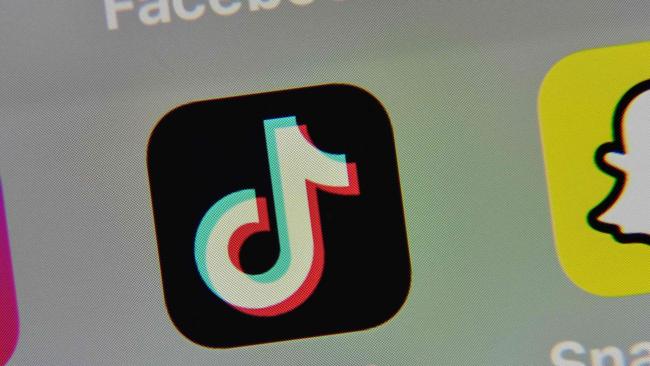‘Trump was right’: US close to banning TikTok
Congress endorses bill preventing Americans from accessing any social media companies controlled or influenced by China or Russia.

The US is moving closer to banning Chinese-owned social networking site TikTok, which counts more than 100 million American users, after a top Democrat congressman conceded Donald Trump “was right” to try to blacklist a platform that cybersecurity experts say could be used to spy on or manipulate Americans.
Republican and Democrat members of congress endorsed a new bill on Tuesday (Wednesday AEDT) that would prevent Americans from accessing any social media companies controlled or influenced by China or Russia, which follows growing concern the popular video-sharing platform could become a CCP political tool.
“This isn’t about creative videos — this is about an app that is collecting data on tens of millions of American children and adults every day. We know it’s used to manipulate feeds and influence elections,” Republican senator Marco Rubio, who introduced the bill, said in a statement.
On the same day, Alabama and Utah joined with South Dakota and at least six other states including Texas, in banning TikTok, which also has more than two million users in Australia, from all government owned digital devices and computers, citing national security concerns.
“We‘re disappointed that so many states are jumping on the bandwagon to enact policies based on unfounded, politically charged falsehoods about TikTok,” a TikTok spokesman said in a statement.
The bill to blacklist potentially hostile apps, which could also ensnare Chinese-owned messaging app WeChat, comes amid increasingly tense economic and strategic competition between the China and the US, which has already imposed tariffs on Beijing for its trade practices, that extends far beyond social media.
Republican Senator Tom Cotton introduced a separate bill on Wednesday (Thursday AEDT) to stop Chinese telecommunications giant Huawei and other Chinese 5G platforms from accessing US financial institutions.
FBI director Chris Wray in a speech last month said the CCP, through TikTok’s parent company ByteDance, could “manipulate content, and if they want to, to use it for influence operations.”
TikTok chief Operating Officer Vanessa Pappas in a senate hearing in September denied the platform shared its information with its parent ByteDance, which Chinese law stipulates must share data with the CCP on request.
“We will never share data, period,” Pappas said.
Democrats’ position on TikTok has become more disapproving since president Joe Biden revoked his predecessor’s 2020 executive order to ban WeChat and TikTok (one ultimately struck down in the courts).
“I think Donald Trump was right,” Democrat Senator Mark Warner said last month in an interview.
“If you‘re a parent, and you’ve got a kid on TikTok, I would be very, very concerned. All of that data that your child is inputting and receiving is being stored somewhere in Beijing.”
Raja Krishnamoorthi, Democrat congressman, said it was “imperative that we do not allow hostile powers to potentially control social media networks that could be easily weaponized against us”.
David Robinson, co-founder of Australian cybersecurity Internet 2.0, backed a US ban and suggested Australia should do the same, and adding that WeChat was “even worse for election interference”.
“A large part of the future of intelligence collection is commercial data sources. It is a national security risk if companies allow our consumer data to be sold to, accessed by or stored in the jurisdictions of authoritarian regimes,” he told The Australian.
A report by the Canberra-based firm, part of the Biden administration’s global push to combat ransomware, published this year pointed out the app obtained more data than it needed to operate, including users’ location, other apps, contacts and calendar.
Politicians have sought to leverage TikTok’s huge popularity – it has one billion users globally and has been downloaded more than 200 million times in the US – to reach its predominantly younger user base.
In October President Biden hosted eight TikTok stars at the White House in October, including transgender TikTok star Dylan Mulvaney.
Congressman Mike Gallagher, a co-chair of the Friends of Australia caucus in Congress and sponsor of the bill in the House of Representatives, said TikTok was “digital fentanyl that’s addicting Americans”, referring to the deadly synthetic opioid.




To join the conversation, please log in. Don't have an account? Register
Join the conversation, you are commenting as Logout